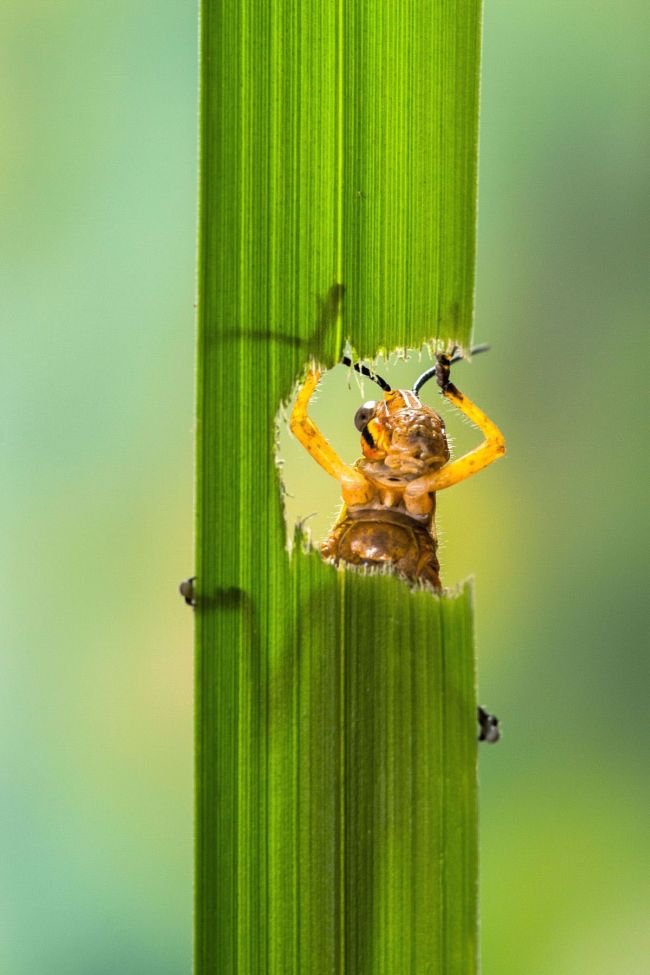|
|
Grasshopper Eating A Plant
|
The grasshopper's nervous system is controlled by ganglia, loose groups of nerve cells which are found in most species more advanced than cnidarians. In grasshoppers, there are ganglia in each segment as well as a larger set in the head, which are considered the brain. There is also a neuropile in the centre, through which all ganglia channel signals. The sense organs (sensory neurons) are found near the exterior of the body and consist of tiny hairs (sensilla), which consist of one sense cell and one nerve fibre, which are each specially calibrated to respond to a certain stimulus. While the sensilla are found all over the body, they are most dense on the antennae, palps (part of the mouth), and cerci (near the posterior). Grasshoppers also have tympanal organs for sound reception. Both these and the sensilla are linked to the brain via the neuropile.
• Circulation and respiration
Grasshoppers have open circulatory systems, with most of the body fluid (haemolymph) filling body cavities and appendages. The one closed organ, the dorsal vessel, extends from the head through the thorax to the hind end. It is a continuous tube with two regions: the heart, which is restricted to the abdomen; and the aorta, which extends from the heart to the head through the thorax. Haemolymph is pumped forward from the hind end and the sides of the body through a series of valved chambers, each of which contains a pair of lateral openings (ostia). The haemolymph continues to the aorta and is discharged through the front of the head. Accessory pumps carry haemolymph through the wing veins and along the legs and antennae before it flows back to the abdomen. This haemolymph circulates nutrients through the body and carries metabolic wastes to the malphighian tubes to be excreted. Because it does not carry oxygen, grasshopper "blood" is green.
Respiration is performed using tracheae, air-filled tubes, which open at the surfaces of the thorax and abdomen through pairs of spiracles. The spiracle valves only open to allow oxygen and carbon dioxide exchange. The tracheoles, found at the end of the tracheal tubes, are insinuated between cells and carry oxygen throughout the body.
|
|









